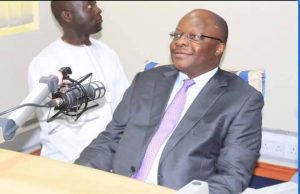By Denis Jjuuko
On this day in 1996, a sizable crowd gathered in front of the majestic Bulange building in Mengo to celebrate a remarkable achievement and one of the Kingdom of Buganda’s most significant investments — the launch of CBS FM.
A radio station meant that the Kabaka would have a direct link with his people everyday. If he wanted them to do something, he would easily reach them. CBS FM would become the first Luganda radio station in the country. Of course Radio Uganda had Luganda programmes but CBS was dedicated to broadcasting in Luganda.
CBS, where I would do my university internship four years later in a failed attempt to become a celebrity and worked as a consultant many years later, isn’t your typical radio station. It represents a heritage and the aspirations of the people of Buganda.
To achieve that, it does stuff no other media house attempts to do. It must promote cultural aspects that may not be profitable and create programmes that get people out of poverty hence programmes such as Nsindika Njake and now Pewosa – a network of savings and investment clubs and cottage industries.
Through its flagship programme Kalisoliiso led by Abbey Mukiibi now for 25 years, they have treated kids with heart diseases, raised money for all sorts of courses that make our country better. Their advocacy has led to extension of social services. No public official wants Kalisoliiso to repeatedly mention that a pothole somewhere isn’t being worked on or a transformer that blew out a week ago isn’t being replaced.
They have empowered people by letting competition winners for their Luganda promotion program win fully fledged schools on all major roads leading to Kampala.
They mobilise masses for good causes such as health, agriculture and much more.
And the Uganda music industry wouldn’t be where it is without CBS FM. Before CBS came around, private radio stations first lincesed in 1993 played western music only. Music concerts meant Congolese musicians.
CBS started playing local music and promoted local musicians and sent the Congolese and their promoters packing. Today, the local music industry has not only created celebrity musicians, it has created millions of jobs for especially young people.
CBS didn’t just play music, they also pioneered large local concert through the Ekitobeero show at Nakivubo stadium every June where thousands of people attended and local musicians found fame and fortune. Ekitobeero led to the now popular Enkuuka y’Omwaka and almost every station organising a music concert.
As they celebrate 25 years today, we can’t start to imagine the other achievements they have been able to achieve and wish them the very best in the future.
The writer is a communication and visibility consultant. djjuuko@gmail.com










